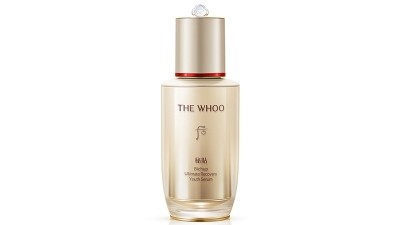China focus: Latest developments in China’s booming beauty market
![[Getty Images]](/var/wrbm_gb_food_pharma/storage/images/_aliases/wrbm_large/publications/cosmetics/cosmeticsdesign-asia.com/china/china-focus-latest-developments-in-china-s-booming-beauty-market22/17370102-1-eng-GB/China-focus-Latest-developments-in-China-s-booming-beauty-market.jpg)
‘In China for China’: Clariant emphasises importance of localisation in the era of viral trends
Swiss specialty chemical company Clariant has underscored the importance of localisation strategies and distribution capabilities in China with beauty trends evolving at a rapid pace.
The rise of social media and e-commerce as a major influence has introduced a new level of unpredictability.
What goes viral online can skyrocket demand overnight, putting pressure on manufacturers, distributors and retailers. On the flip side, trends can also fade just as quickly, leaving suppliers with excess inventory and potential losses.
The firm has invested in its local production in Daya Bay, Huizhou to expand its existing production capacity for personal care as well as home care and industrial applications.
Chinese researchers identify IGF2 in oral mucosa as key factor for ‘scarless wound healing’
Researchers from Zunyi Medical University in China have identified Insulin-like Growth Factor 2 (IGF2) in oral mucosa as a key factor in accelerating the process of wound healing without scars.
The oral mucosa is the mucous membrane that lines in the inside of the mouth. Compared to skin wounds, oral wounds can heal faster and without leaving scars.
“Although there is no difference in the wound healing stages of skin and oral mucosa, the healing rate of oral mucosal wounds is faster than that of skin wounds, and most importantly, without scarring. And the re-epithelialisation ability of oral mucosal wounds is better than skin wounds, indicating a stronger proliferation capability of oral mucosal keratinocytes.”
Native Extracts aims to collaborate with C-beauty brands with ‘advanced’ Chinese botanicals
Australian ingredients firm Native Extracts is seeking opportunities to work with China beauty brands to introduce its cellular extract-versions of Chinese ingredients into the market.
Director Lisa Carroll believes the firm’s portfolio of natural ingredients would resonate with Chinese beauty consumers, given China’s long history and connections to botanical and herbal medicines and remedies.
She said that the company has a range of cellular extracts that would be familiar to Chinese consumers, such as licorice, arnica, ginkgo, and green tea.
High BMI alters facial skin microbiota, impairs barrier function and increases risk of skin disorders – China study
Chinese researchers have found that a high body mass index (BMI) alters facial skin microbiota and affects the integrity of skin barrier, which raises the risk of skin disorders.
Obesity has been evidenced to be a major risk factor for inflammatory skin diseases, while the skin microbiome is known to harbour site-specific microbial communities that are influenced by biophysical properties, such as moisture, sebum, and skin surface acidity (pH).
However, little is known about the link between BMI and facial skin physiological parameters, particularly facial skin microbiome.
PCHi Fountain Awards celebrates beauty industry after competitive judging
The Fountain Awards by Personal Care and Homecare Ingredients (PCHi) were presented to 17 winners across 13 beauty categories to celebrate industry innovation, on March 20 in Shanghai, China.
This year, the awards received a total of 221 product submissions and applications from 20 engineers, a 40% increase from the previous year.
Anti-ageing emerged as the category with the highest number of submissions.
![Lubrizol has extended its partnership with C-beauty major PROYA. [PROYA]](/var/wrbm_gb_food_pharma/storage/images/_aliases/wrbm_medium/publications/cosmetics/cosmeticsdesign-asia.com/headlines/brand-innovation/lubrizol-bullish-on-potential-of-c-beauty-growth-potential/17362515-1-eng-GB/Lubrizol-bullish-on-potential-of-C-beauty-growth-potential.jpg)

![Down Under Enterprises is setting sights on the Asian market as environmental sustainability and traceability become increasingly important. [Getty Images]](/var/wrbm_gb_food_pharma/storage/images/_aliases/wrbm_medium/publications/cosmetics/cosmeticsdesign-asia.com/headlines/market-trends/down-under-enterprises-shifts-focus-to-china-as-environmental-sustainability-traceability-come-into-the-spotlight/17304932-1-eng-GB/Down-Under-Enterprises-shifts-focus-to-China-as-environmental-sustainability-traceability-come-into-the-spotlight.jpg)
![hinese researchers have found that a high body mass index (BMI) alters facial skin microbiota. [Getty Images]](/var/wrbm_gb_food_pharma/storage/images/_aliases/wrbm_medium/publications/cosmetics/cosmeticsdesign-asia.com/article/2024/04/03/high-bmi-alters-facial-skin-microbiota-impairs-barrier-function-and-increases-risk-of-skin-disorders-china-study/17310557-1-eng-GB/High-BMI-alters-facial-skin-microbiota-impairs-barrier-function-and-increases-risk-of-skin-disorders-China-study.jpg)


![Curie Co has launched a naturally derived bond builder which it believes has the potential to be an effective anti-humidity hair care solution for South East Asia. [Getty Images]](/var/wrbm_gb_food_pharma/storage/images/_aliases/wrbm_tiny/publications/cosmetics/cosmeticsdesign-asia.com/headlines/formulation-science/curie-co-believes-its-bond-builder-can-bring-effective-anti-humidity-hair-solutions-to-sea/17375805-1-eng-GB/Curie-Co-believes-its-bond-builder-can-bring-effective-anti-humidity-hair-solutions-to-SEA.jpg)
![The Whoo has helped to bolster sales for LG H&H and restore the firm’s growth trajectory. [The Whoo]](/var/wrbm_gb_food_pharma/storage/images/_aliases/wrbm_tiny/publications/cosmetics/cosmeticsdesign-asia.com/headlines/business-financial/lg-h-h-beauty-returns-to-growth-on-the-back-of-the-whoo-renewal/17378661-1-eng-GB/LG-H-H-beauty-returns-to-growth-on-the-back-of-The-Whoo-renewal.jpg)
![Skinidea has developed a new skin care brand, MDP, specifically to target US beauty consumers. [Medipeel]](/var/wrbm_gb_food_pharma/storage/images/_aliases/wrbm_tiny/publications/cosmetics/cosmeticsdesign-asia.com/headlines/business-financial/skinidea-develops-new-brand-to-target-us-market-as-part-of-expansion-plans/17362677-1-eng-GB/Skinidea-develops-new-brand-to-target-US-market-as-part-of-expansion-plans.jpg)
![Organic Bioactives has debuted hair care solutions for the first time. [Getty Images]](/var/wrbm_gb_food_pharma/storage/images/_aliases/wrbm_tiny/publications/cosmetics/cosmeticsdesign-asia.com/headlines/formulation-science/organic-bioactives-launches-native-nz-botanicals-hair-care-actives/17376246-1-eng-GB/Organic-Bioactives-launches-native-NZ-botanicals-hair-care-actives.jpg)


![Toyo Sugar enzymatically modified resveratrol to make it water-soluble and more bioavailable. [Getty Images]](/var/wrbm_gb_food_pharma/storage/images/_aliases/wrbm_tiny/publications/cosmetics/cosmeticsdesign-asia.com/headlines/formulation-science/toyo-sugar-produces-water-soluble-resveratrol-for-cosmetics/17378607-1-eng-GB/Toyo-Sugar-produces-water-soluble-resveratrol-for-cosmetics.jpg)